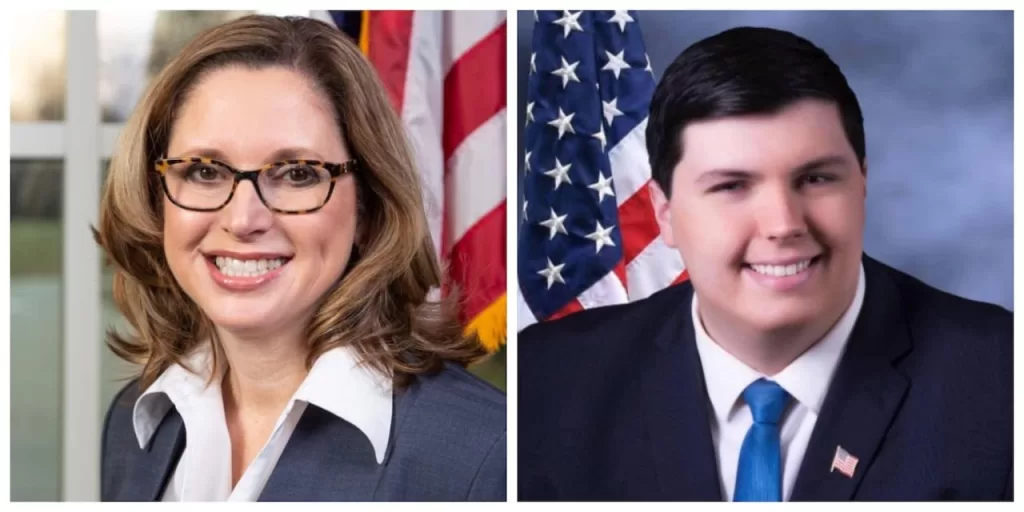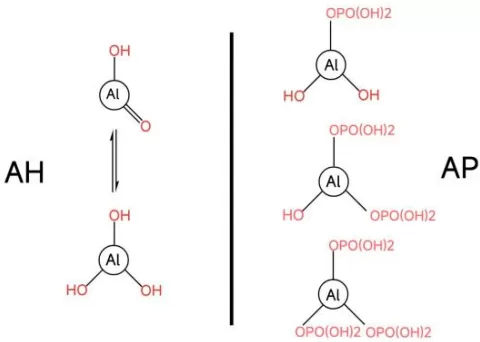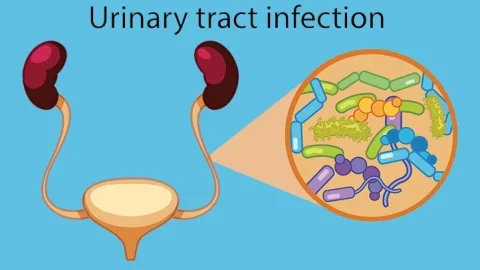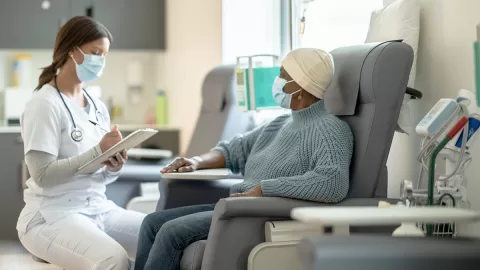Calls for Kennedy’s resignation have intensified as public health concerns loom over the significant staffing cuts at the Department of Health and Human Services (HHS). Amidst rising apprehension within the biomedical sector regarding the FDA’s operational capacity under Kennedy’s management, various public health organizations urge immediate action. Prominent health advocates like the American Public Health Association (APHA) and Treatment Action Group (TAG) stress that these cuts not only jeopardize ongoing public health initiatives but also directly impact funding for critical programs. The lack of decisive action from Kennedy, particularly in the wake of his controversial statements about vaccines, exacerbates existing FDA leadership issues. As HHS faces mounting scrutiny and pressure, the intersection of public health advocacy and effective governance becomes increasingly vital.
In light of recent developments, the chorus demanding the removal of Secretary Kennedy has become a focal point for discussions surrounding public health leadership and governance. Detractors from various sectors, including health advocacy groups and biomedical professionals, are expressing profound concerns about the implications of HHS funding cuts and the diminishing support for critical health research efforts. The fallout from these cuts is being felt across programs targeting infectious diseases, while worries over the FDA’s ability to maintain its status as a premier regulatory body intensify. This situation highlights the urgent need for effective leadership that prioritizes science and public health, especially in a time when misinformation can lead to dire consequences. As such, the ramifications of Kennedy’s tenure on national health initiatives are under fierce examination.
The Rising Calls for Kennedy’s Resignation
In the aftermath of various public health setbacks, organizations are uniting to call for the resignation of Robert F. Kennedy Jr. from his position as HHS Secretary. Concerns have surged among public health groups regarding his leadership following significant staff cuts in the Department of Health and Human Services (HHS). These cuts have resulted in weakened state public health initiatives and compromised the national response to infectious diseases like measles, raising alarms about American health safety. Calls for Kennedy to resign underscore a desperate need for accountability in the wake of these troubling developments.
Kennedy’s tenure has signalized a crucial juncture for public health in the United States. Leaders such as Dr. Georges Benjamin from the American Public Health Association (APHA) have emphasized that Kennedy’s actions reflect a blatant disregard for scientific rigor. The implications of his decisions can be detrimental, jeopardizing vital programs at institutions like the CDC and the FDA. Given the nexus of persistent health crises and inadequate public health funding, the insistence on Kennedy’s resignation reflects a broader call for renewed commitment to public health advocacy and science-based leadership.
Impact of Leadership on Public Health Concerns
The leadership crisis within HHS under Robert F. Kennedy Jr. has created an atmosphere of uncertainty and concern among health organizations. The dramatic funding cuts to essential health programs have raised alarms regarding the capacity of the FDA to address public health challenges effectively. For instance, initiatives aimed at combatting infectious diseases such as measles have seen a significant reduction in support, jeopardizing efforts to protect vulnerable populations. This situation has led many public health advocates to question not just Kennedy’s decisions but also the future of health measures critical to safeguarding American citizens.
Furthermore, mixed messaging from HHS has compounded these public health concerns. As Kennedy promotes unverified treatments amidst rising infection rates, the credibility of public health initiatives hangs in the balance. Key public health figures have voiced their frustrations on how Kennedy’s leadership might derail years of progress in combating preventable diseases. The fallout from his controversial decisions is expected to reverberate throughout the biomedical sector, ultimately impacting how effectively health agencies can respond to emerging public health crises.
Biomedical Sector’s Response to Leadership Issues
The biomedical sector has expressed significant concerns over the leadership challenges facing the FDA under Robert F. Kennedy Jr. A coalition of biomedical professionals, including No Patient Left Behind, has alerted lawmakers to the operational deficiencies that threaten the integrity of FDA functions. They emphasize that staff reductions and constraints on hiring may lead to the loss of crucial institutional knowledge, hindering the agency’s capability to regulate effectively and respond to health emergencies. As a result, both innovation and patient safety may be at risk.
Investors and developers within the biomedical field are particularly on edge, fearing that the deficiencies at the FDA will impede their ability to bring new therapies to market. The warnings from groups like the National Institutes of Health (NIH) underscore the potential repercussions if regulatory processes are delayed due to these challenges. With funding cuts already impacting essential research, stakeholders are calling for immediate action to restore FDA’s operational efficacy, ensuring it remains a leader not only in American health management but as a global beacon of regulatory excellence.
Public Health Advocacy: The Call for Reform
Amidst the turmoil enveloping the HHS under Kennedy’s administration, public health advocacy has emerged as a crucial element in pushing for reforms. Numerous organizations have rallied together to challenge the funding cuts that threaten public health infrastructure across the United States. These advocates are leveraging their platforms to demand a leadership overhaul that prioritizes scientific integrity and adheres to public health principles. The overarching goal is to ensure that public health funding, particularly for pressing issues like HIV, tuberculosis, and hepatitis C, remains a top priority.
Advocacy groups are not only critiquing the current state of leadership but also positing actionable recommendations to reshape public health governance. They are emphasizing the need to restore confidence in health agencies and reinstate programs that have a direct impact on community health. By raising awareness and mobilizing public support, advocates aim to revive the notion that effective public health strategies, empowered by informed leadership, are essential for the United States to confront current and future health challenges.
Implications of HHS Funding Cuts
The recent cuts to the HHS budget have devastating implications for a range of public health programs, significantly affecting the fight against diseases that require sustained research and action. These cuts not only jeopardize funding for essential health initiatives but also risk dismantling years of progress made in disease prevention and health promotion. Experts caution that reducing resources aimed at combating HIV, tuberculosis, and hepatitis C will have long-term consequences on community health outcomes and disparities, especially among vulnerable populations.
As organizations like the Treatment Action Group (TAG) outline the challenges born from these budget cuts, the risk of resurgent diseases looms large. The attempt to balance the budget at the expense of vital public health initiatives could undo decades of work aimed at disease eradication and mitigation. This bleak outlook highlights the urgent need for a comprehensive review of HHS funding priorities, ensuring that future allocations reflect a commitment to health equity and effective disease response mechanisms that can withstand political fluctuations.
Lessons from the COVID-19 Vaccine Approval Process
Recent controversies surrounding the FDA’s approval process for COVID-19 vaccines bring to light the critical importance of effective leadership at the agency. Under Kennedy’s guidance, unorthodox approaches to vaccine approval have raised eyebrows among health professionals and the public alike. Delays and miscommunications have not only impeded the timely rollout of vaccines but have also incited skepticism regarding their safety and efficacy. This turmoil underscores the necessity for transparent and scientifically grounded approval processes to maintain public trust in vaccines.
Moreover, the FDA’s recent handling of vaccine approvals reflects larger systemic issues that could disrupt public health initiatives moving forward. With vaccine hesitancy already a significant barrier to achieving herd immunity, any perception of mismanagement or incompetence threatens progress. The fallout from these issues highlights the need for robust leadership within the FDA that is committed to adhering to established scientific protocols while also engaging with public concerns transparently. Ensuring that incidents of misinformation are addressed swiftly is crucial for rebuilding faith in public health efforts.
Strengthening FDA Leadership to Safeguard Public Health
The directives and strategies led by HHS Secretary Robert F. Kennedy Jr. have sparked a broader conversation about the necessity to strengthen leadership within the FDA. With calls for his resignation amplifying, stakeholders are emphasizing that a capable and credible leadership team is essential for the FDA to fulfill its mission of safeguarding public health. Attaining adept leadership involves not only appointing experienced professionals but also fostering an environment conducive to scientific inquiry and rigorous regulatory practices.
The FDA’s challenges highlight the complexity of managing a leading regulatory body in turbulent times. Re-establishing its credibility requiere a commitment to rebuilding relationships with public health organizations and stakeholders in the biomedical field. By ensuring that the FDA is adequately funded and staffed with skilled personnel, the agency can enhance its operational capabilities. In doing so, it creates a robust framework for innovation while also adhering to safety standards that protect American public health.
Future Prospects for Public Health Under New Leadership
As the debate regarding the potential resignation of Robert F. Kennedy Jr. unfolds, the future of American public health remains precarious. Experts and advocates are increasingly vocal about the need for transformative leadership that is responsive to public health challenges and prioritizes scientific evidence in policy formation. Anticipating a shift in administration, there are glimmers of hope that new appointments could reinstate trust in public health agencies while also infusing them with renewed vigor to tackle health crises effectively.
The prospect of new leadership serves not only as a potential catalyst for reforming existing policies but also as an opportunity to address public health challenges more holistically. Supporters of systemic change advocate for heightened collaboration between regulatory bodies and public health institutions, emphasizing the importance of stakeholder engagement in formulating health strategies. A future where public health is prioritized could lead to enhanced preparedness and a more agile response to emerging health threats, contributing to an overall healthier society.
Navigating Misinformation in Public Health Discourse
In the current landscape of public health, combating misinformation is a paramount challenge faced by health officials and advocates alike. The spate of misleading statements regarding vaccine safety and efficacy, particularly during the ongoing pandemic, has fomented hesitancy and confusion among the public. Kennedy’s remarks regarding COVID-19 vaccines exemplify the urgency with which misinformation must be addressed, as the consequences of such inaccuracies can hinder public health efforts significantly.
Strategies to navigate misinformation include enhancing communication efforts from credible health organizations, bolstering public health education, and engaging communities through dialogue grounded in science. By proactively addressing concerns and dispelling myths surrounding vaccines and treatments, public health advocates can foster a climate of trust and transparency. Such measures are essential not only for improving vaccination rates but also for safeguarding the integrity of public health initiatives amid ongoing disputes over health policies.
Frequently Asked Questions
What are the main reasons behind the calls for Kennedy’s resignation related to public health concerns?
Public health groups are calling for Kennedy’s resignation due to significant cuts to the HHS staff and funding reductions at the CDC and FDA. They highlight that these changes jeopardize public health efforts, especially in combating infectious diseases like measles, along with a perceived disregard for scientific principles exhibited by Kennedy.
How have HHS funding cuts impacted the biomedical sector under Kennedy’s leadership?
The funding cuts at HHS have raised alarms in the biomedical sector, impacting critical programs for diseases such as HIV, hepatitis C, and TB. Experts warn that these budget reductions threaten ongoing research and development, impairing the FDA’s capacity to effectively regulate biomedical innovations and hindering small companies’ progress in clinical development.
What specific FDA leadership issues are contributing to the calls for Kennedy to resign?
Kennedy faces criticism for a chaotic restructuring of the FDA and for presiding over significant staff reductions that risk the agency’s operational capacity. Concerns have been raised about the loss of institutional knowledge that is crucial for maintaining the FDA’s status as the leading regulatory body globally.
Why are public health advocacy groups concerned about Kennedy’s leadership in relation to measles outbreaks?
Public health advocacy groups express concern that Kennedy’s leadership has not strongly advocated for vaccinations, especially after recent measles fatalities. His promotion of unverified treatments and failure to support robust vaccination efforts have compounded fears regarding the resurgence of preventable diseases.
What actions have public health organizations taken regarding Kennedy’s position amidst the ongoing public health crises?
Public health organizations, notably the American Public Health Association and the Treatment Action Group, have publicly urged for Kennedy’s resignation or dismissal, calling attention to the harmful effects of his policies and leadership on public health, research funding, and disease control efforts.
How might Kennedy’s resignation affect the future of FDA operations and public health initiatives?
If Kennedy were to resign, it could open the door for leadership that prioritizes scientific integrity and resource allocation to public health initiatives. This change may help restore confidence in the FDA’s operational efficacy and reinstate necessary funding and support for critical public health programs, potentially reversing negative trends caused by current policies.
| Key Points | Details |
|---|---|
| Public Health Groups’ Calls | APHA and TAG urge Kennedy to resign due to significant public health cuts. |
| Concerns Raised | Disregard for scientific principles, chaos at HHS, and staffing cuts. |
| Impact on Disease Research | Cuts threaten funding for HIV, hepatitis C, and TB research. |
| Letter from Biomedical Group | No Patient Left Behind expresses concerns over FDA’s capacity. |
| Regulatory Challenges | Delays in FDA reviews affect smaller companies’ funding and development. |
| Misinformation Concerns | Criticism of Kennedy’s comments on vaccine efficacy. |
Summary
Kennedy resignation calls have intensified as public health groups express serious concerns over his leadership amid drastic funding cuts to crucial health services. As public health officials and biomedical experts voice their discontent, the implications for the FDA’s operational capacity and ongoing research in critical areas such as TB and HIV are becoming alarming. The mounting pressure on Kennedy to step down highlights the broader issues facing public health initiatives and the urgent need for effective leadership in combating infectious diseases.
The content provided on this blog (e.g., symptom descriptions, health tips, or general advice) is for informational purposes only and is not a substitute for professional medical advice, diagnosis, or treatment. Always seek the guidance of your physician or other qualified healthcare provider with any questions you may have regarding a medical condition. Never disregard professional medical advice or delay seeking it because of something you have read on this website. If you believe you may have a medical emergency, call your doctor or emergency services immediately. Reliance on any information provided by this blog is solely at your own risk.








